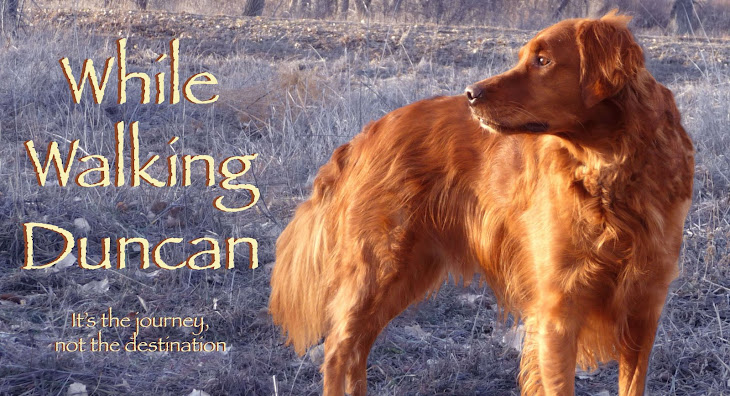To make a prairie it takes a clover and one bee,
One clover and a bee.
And revery.
(Emily Dickinson)
One clover and a bee.
And revery.
(Emily Dickinson)

The clover is up and spreading across the fields in creeping, purple and white-flowered amoeba patches. Great portions of the grass along the banks of the narrow little brook that winds down the side of Lilley Gulch have been overtaken by its thick tufts, which tangle toes and laces alike in beautiful green knots. We sat on the bank after crossing over, Duncan rolling and wiping away the last of his sweet grooming while I kicked off my flip-flops and entwined my toes around the curling stems and puff ball bulbs. I watched the clover a long time and couldn't help but feel as though something was missing. Finally I remembered that when I was young we had several large patches of it up on the sloped edge of our yard and in the Summer it was a no man's land, a place we didn't venture until the sun had dipped below the horizon and the air cooled. We could've hung a sign that read: "Here there be bees." Congregations of bees danced and burst from the flowers, nearly colliding in the air, alighting with improbable ease over and over all day long.
This patch, though, this large heavy patch, tangled and cowlicked with purple and white blossoms, was devoid of bees. I could've traipsed it blindfolded and not worried about offending and being stung. I watched for a long time and only when Duncan grew restless and the smell of dinner barbeques drifted over the meadow did I spot the first bee, a single soul working as hard as a swarm, bouncing from flower to flower, bending the delicate stems under its hairy weight, barely staying in one place long to allow the flower to right itself and cease bobbing from side to side as he moved furiously around it. How he worked! I eased forward on my belly quite near him, not at all fearful, and watched in fascination. Such gentle amazing creatures, so small but of such importance. The Mormons revere them for their tight communities and industriousness. Cultures throughout history have sought the fruits of the bees labor and even to this day we call those we love most "Honey." Early traditions believed that bees were the keepers of paradise and were the servants of the Gods. Some believed the bee represented our very souls for their ability to return home from great distances.
And now the clover fields are empty.
 I've been hearing a lot about Colony Collapse Disorder recently and it's bothered me tremendously. After all, so much of what I write about––my love of the scent of the Russian Olives and the trees that color our nights with their sweet honey-dipped lilac scent, the colors of the flowers, the glory of the Gulch and the tranquility of our lake walks––are direct results of the efforts of bees, who so many of us needlessly fear and shrink away from.
I've been hearing a lot about Colony Collapse Disorder recently and it's bothered me tremendously. After all, so much of what I write about––my love of the scent of the Russian Olives and the trees that color our nights with their sweet honey-dipped lilac scent, the colors of the flowers, the glory of the Gulch and the tranquility of our lake walks––are direct results of the efforts of bees, who so many of us needlessly fear and shrink away from.I watched my bee, my lone toiler, in rapt fascination and wondered if anyone else has noticed their absence.























